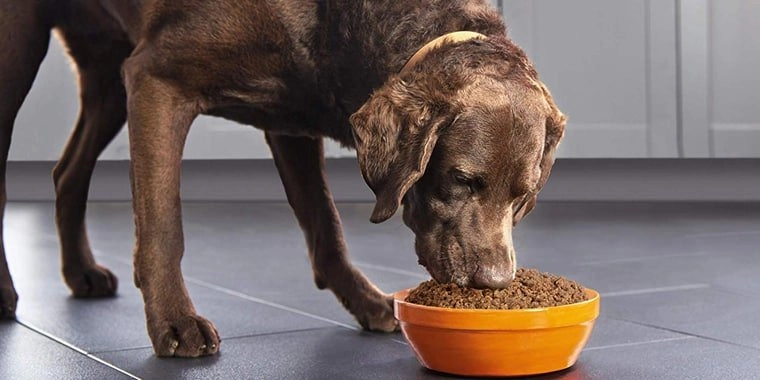
Contents
In recent years, grain free diets for dogs have surged in popularity, driven by a combination of marketing trends, anecdotal evidence, and growing awareness of canine nutrition. As more dog owners seek the best dietary options for their furry companions, it’s crucial to understand the intricacies of grain free diets, their benefits, potential risks, and how to choose the right products for your pet. This blog delves into what you need to know about grain free diets for dogs.
Understanding Grain Free Diets
A grain-free diet for dogs is one that excludes grains such as wheat, corn, rice, barley, and oats. Instead of these common ingredients, grain-free dog foods often include alternative sources of carbohydrates like sweet potatoes, lentils, peas, and chickpeas. Protein sources in these diets remain similar to traditional dog foods, including chicken, beef, fish, and lamb.
Benefits of Grain Free Diets
- Reduction in Allergies and Sensitivities: Some dogs are allergic or sensitive to grains, which can manifest as skin irritations, digestive issues, and ear infections. Switching to a grain-free diet can alleviate these symptoms and improve overall health.
- Improved Digestion: Dogs’ digestive systems are more adept at processing proteins and fats rather than grains. For some dogs, grain-free diets can lead to better digestion and less gastrointestinal distress.
- Increased Energy Levels: High-quality grain-free dog foods often contain higher levels of protein and fat, which can provide a more sustained energy source for active dogs.
- Weight Management: For dogs that struggle with weight, grain free diets can sometimes help in maintaining a healthier weight. The higher protein content can promote satiety and reduce overeating.
Potential Risks and Considerations
Despite the benefits, there are also potential risks associated with grain free diets that pet owners should consider:
- Nutritional Imbalances: Not all grain-free foods are created equal. Some may lack essential nutrients or have inappropriate nutrient ratios, which can lead to health issues over time.
- Heart Health Concerns: Recent studies have suggested a possible link between grain free diets and dilated cardiomyopathy (DCM) in dogs, a condition affecting the heart muscle. While the exact cause is still under investigation, it highlights the importance of consulting with a veterinarian before making any dietary changes.
- Cost: Grain-free dog foods tend to be more expensive than their grain-inclusive counterparts. The higher cost is due to the use of alternative ingredients and a focus on higher-quality proteins.
- Misconceptions: Not all dogs need a grain-free diet. Unless your dog has a specific grain allergy or sensitivity diagnosed by a vet, a grain-inclusive diet can be perfectly healthy and balanced.
Choosing the Right Grain-Free Food
When selecting a grain-free dog food, it’s essential to consider the quality of ingredients, the balance of nutrients, and the specific needs of your dog.
- Read the Label: Look for dog foods that list a high-quality source of animal protein as the first ingredient. Avoid foods with fillers and artificial additives.
- Check for Nutritional Balance: Ensure the food meets the Association of American Feed Control Officials (AAFCO) standards for a balanced diet.
- Consider Your Dog’s Specific Needs: Age, breed, size, and activity level can all influence your dog’s nutritional requirements. Choose a food that caters to these specific needs.
- Consult Your Veterinarian: Before switching to a grain-free diet, discuss it with your vet to ensure it’s the right choice for your dog’s health.
A Trusted Source for Grain-Free Dog Food
When it comes to providing high-quality, nutritious, and grain-free options for your dog, Skippers Pet Products stands out as a trusted name. Skippers Pet Products is renowned for their commitment to using only the finest ingredients in their dog food, ensuring that your pet receives the best possible nutrition.
Their grain-free offerings are crafted with a focus on natural, wholesome ingredients, avoiding artificial additives and fillers. Skippers’ products are rich in protein, sourced from premium fish, which is not only highly digestible but also an excellent source of omega-3 fatty acids, promoting a healthy coat and skin, as well as supporting joint health.
Skippers Pet Products also prioritize sustainability and ethical sourcing, making them a responsible choice for environmentally conscious pet owners. Their dedication to quality and transparency ensures that you know exactly what you’re feeding your dog, giving you peace of mind that your furry friend is receiving top-tier nutrition.
Transitioning to a Grain-Free Diet
Switching your dog to a grain-free diet should be done gradually to avoid digestive upset. Here’s a simple guide to help you transition smoothly:
- Start Slowly: Begin by mixing a small amount of the grain-free food with your dog’s current food.
- Monitor Your Dog: Keep an eye on your dog’s reaction to the new diet. Look for signs of improved health, such as better digestion, increased energy, and a shinier coat. Also, watch for any adverse reactions like gastrointestinal issues or changes in behavior.
- Adjust as Needed: Every dog is unique, and what works for one may not work for another. Be prepared to adjust the diet if necessary, and consult your vet if you have any concerns.
Conclusion
A grain free diets can offer numerous benefits for dogs, particularly those with grain allergies or sensitivities. However, it’s essential to approach this dietary choice with careful consideration and awareness of potential risks. By choosing high-quality grain-free products, like those offered by Skippers Pet Products, and consulting with your veterinarian, you can ensure that your dog receives a balanced, nutritious diet that supports their overall health and well-being.
Remember, every dog is different, and their dietary needs can vary greatly. Whether you opt for a grain free diets or a grain-inclusive one, the most important factor is to provide your pet with the nutrition they need to thrive. With the right approach and the right products, you can make informed decisions that contribute to your dog’s long, healthy, and happy life.